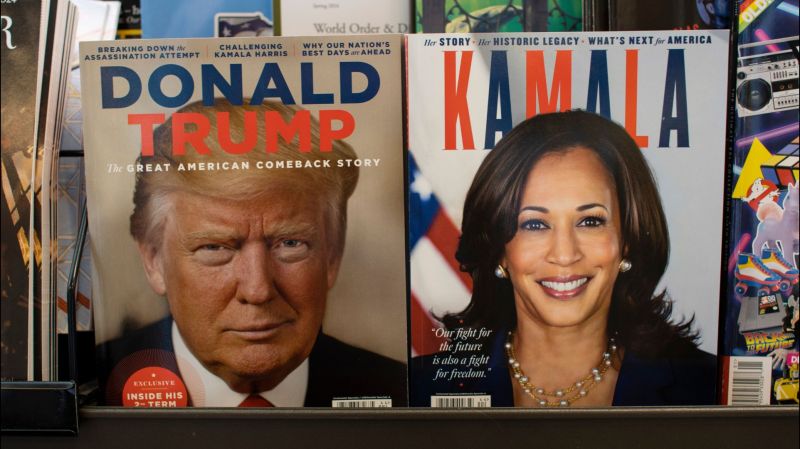Why Partisan CEOs Wear Rose-Coloured Glasses
When their favoured president is in the Oval Office, chief executives issue overly optimistic forecasts

With the Super Bowl of U.S. politics just around the corner, it is a good time to consider how partisan affiliations and political action play out in corporate executive suites.
You don’t have to be a conspiracy theorist to acknowledge that CEOs use political donations to get close to legislators in order to access insider policy information and ease regulatory oversight. The intel they collect is baked into many areas of corporate strategy.
More subtle is the potential impact of partisan bias on executive decision-making. Partisan bias is a well-established phenomenon that arises from our tendency to subconsciously interpret information consistent with our political affiliation (in the case of the U.S., Republican or Democrat). For example, if you’re a card-carrying Democrat and the president of the day is also a Democrat, you’ll likely express more favourable views of the economy than if you were nonpartisan or a Republican under a Democrat president.
CEOs are just as human as the rest of us. Do they fall prey to partisan bias and, if so, are the forecasts for their firms’ growth opportunities influenced by their views of the sitting U.S. president?
A timely study by researchers, including Jing Wang, PhD’18, of Smith School of Business, took a stab at answering that question. They investigated whether CEOs whose partisanship aligns with that of the U.S. president issue more optimistically biased management earnings forecasts than nonaligned CEOs.
How was the study designed?
The researchers measured a CEO’s partisanship based on the political party that received the greater percentage of that person’s political donations (direct party contributions or contributions to candidates representing that party). Data came from the Center for Responsive Politics database and focused on CEO donations made directly to the Democratic or Republican party or any Democratic or Republican candidate in election cycles preceding the U.S. presidential elections in 2004, 2008, 2012 and 2016. Twenty-eight per cent of the sample CEOs were partisan-aligned, while 72 per cent were nonaligned. The researchers also combined CEO firm-year data with management annual earnings forecasts from 2005 through 2018.
What did the study find?
- Firms with CEOs whose partisanship aligned with that of the U.S. president issued more optimistically biased annual earnings forecasts than firms with nonaligned CEOs.
- The overly optimistic earnings forecasts of partisan-aligned CEOs were partly due to overestimating customer demand and resulted in greater firm overinvestment.
- CEOs with more firm-specific experience and better performance (measured by industry-adjusted CEO-specific return on assets) were less susceptible to partisan bias.
- Investors failed to discount the earnings forecasts of partisan-aligned CEOs, and their firms’ cumulative abnormal returns following the forecast release date were significantly lower.

What do I need to know?
In the hyper-partisan environment of U.S. politics, public perceptions of objective economic conditions are split along party lines and depend on who sits in the Oval Office. Individuals, including corporate executives, who have strong political affinities tend to focus on information that confirms their views and discount challenging opinions.
This study shows that partisan bias, another cognitive processing error running in the recesses of the mind, can also affect CEO judgment. Corporate leaders whose partisanship aligns with that of the U.S. president issue more optimistically biased earnings forecasts than nonaligned CEOs.
Management forecasts have an important role in capital markets and are used to set expectations, so it is no surprise that partisan bias produces negative economic outcomes for investors.
These findings are similar to another recent study that found that partisan-aligned CEOs use a more optimistic tone in their corporate disclosure reports and exhibit a lower level of accounting conservatism.
One significant mitigating factor is CEO ability: more experienced and higher-performing CEOs seem to be inoculated against partisan bias. This is in line with behavioural economics research that has found that those with higher cognitive ability are less susceptible to psychological biases. Higher-ability CEOs can better anticipate changes in the underlying economics and performance of their firms, a phenomenon that investors would be wise to consider.
Study title: CEO Partisan Bias and Management Earnings Forecast Bias
Authors: Michael D. Stuart (Spears School of Business), Jing Wang (Smith School of Business), Richard H. Willis (The Owen Graduate School of Management)
Published: Review of Accounting Studies, published online July 2024